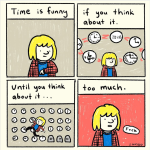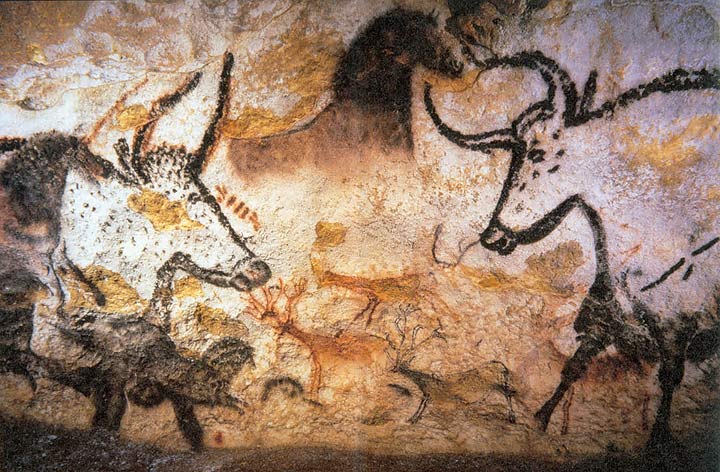It’s a question that haunts me. According Maslow, art should be something that we only bother with once we have secure housing, food supply, love, care, and support…and yet. And yet—there is something so patently untrue about this. Art is made despite a lack of these things; often because of that lack.
John Green, discussing the Lascaux Caves, says in his excellent book, ‘The Anthropocene Reviewed’:
The paintings were made a time in early human history, when every healthy and capable person would have needed to contribute to the basic survival of themselves and their clan. And yet, still made art. Almost as if art is essential…
In a book I talk a lot about, ‘Art and Fear,’ David Bayles and Ted Orland say:
Through most of history, the people who made art never thought of themselves as making art. In fact it’s quite presumable that art was being made long before the rise of consciousness, long before the pronoun “I” was ever employed. The painters of caves, quite apart from not thinking of themselves as artists, probably never thought of themselves at all. What this suggests, among other things, is that the current view equating art with “self-expression” reveals more a contemporary bias in our thinking than an underlying trait of the medium.
Motivations for making art are more complicated today than they ever were, because of money and media, which has turned art into a tradable commodity. Even 200 years ago, it was less complicated. Art was so tied up for the most part with the Church that the ‘purpose’ for it was clear: art was in the service of God, not in the service of oneself.
Bayles and Orland again:
Making art now means working in the face of uncertainty; it means living with doubt and contradiction, doing something no one much cares whether you do, and for which there may be neither audience nor reward.
While that may be true, there is a paradox at the heart of this – we make art for our own “self-expression”, but it is still a political act. There is still a social value not just in a good product, but in the act of doing something that does not equate neatly to a limited notion of value that reduces people to dollar value.

I make art (in my case, writing songs, writing articles, and making videos) for a curdle of reasons. Yes, it’s self-expression. It’s also a way to make money (at least part of it, but all the other ways I make money rely on the very fact that I’m an active songwriter, so in essence, entirely to make a living). But it’s also something more. It’s a contradiction. I would (and do) write songs regardless of whether I would make money from them. I do it as an almost aggressively spiritual act. The kind of ‘muscular’ spiritual act that I think Krista Tippett talks about on her podcast, On Being (one of my all-time favourite podcasts, by the way). It’s not spiritual in the sense of touching the ‘divine’. It’s spiritual in the sense of the painfully awkward act of doing something in the face of uncertainty; uncertain of the very reasons why I do it.
I have started to read ‘The Practice’ by Seth Godin, and was moved when I read:
Let’s call it art. The human act of doing something that might not work, something generous, something that will make a difference. The emotional act of doing personal, self-directed work to make a change that we can be proud of. We each have more leverage than ever before. We have access to tools, a myriad of ways forward, and a real chance to contribute. Your part matters. Your art matters.
Art matters. I’m not sure why it does. But it really, really does.


